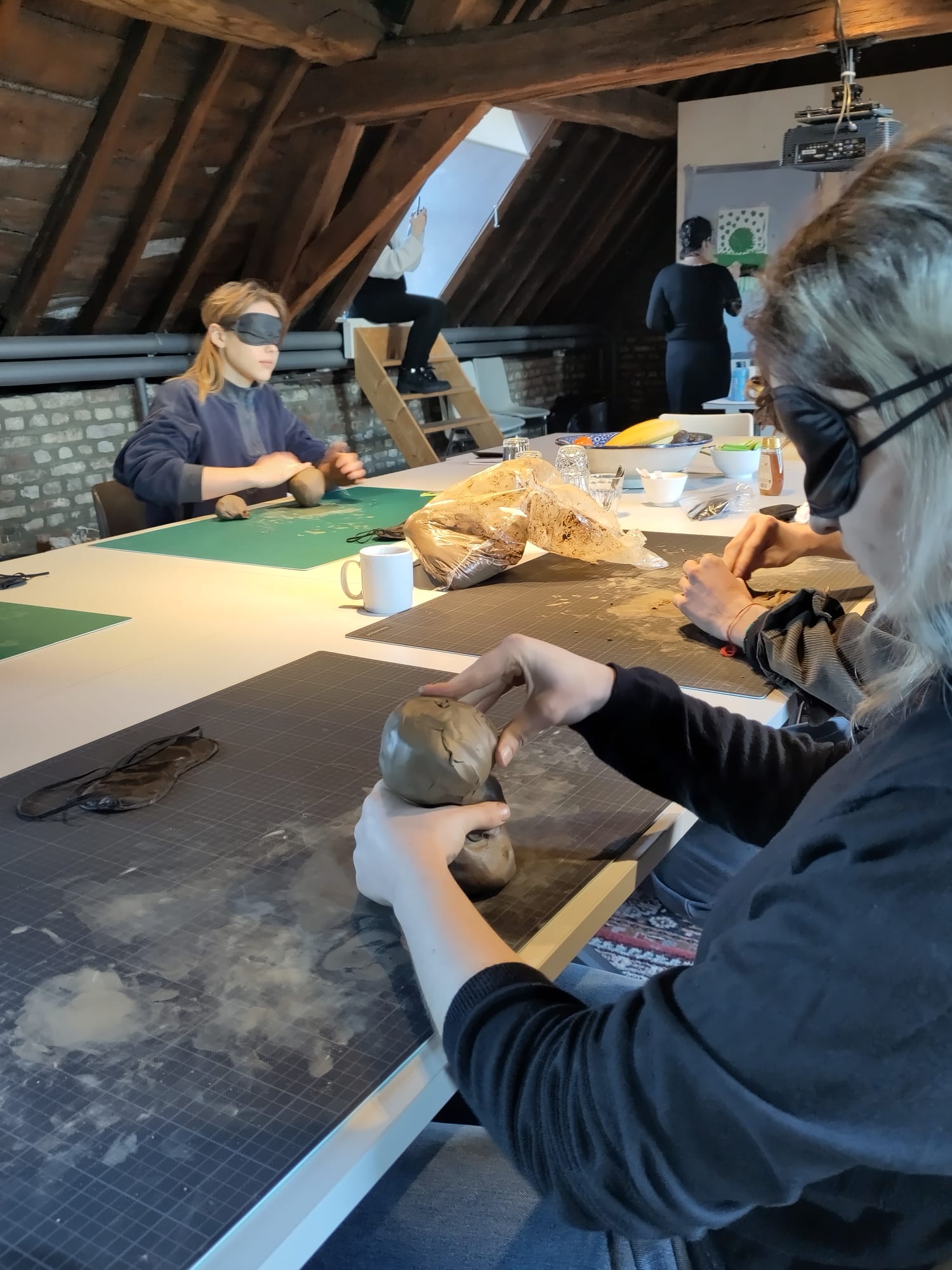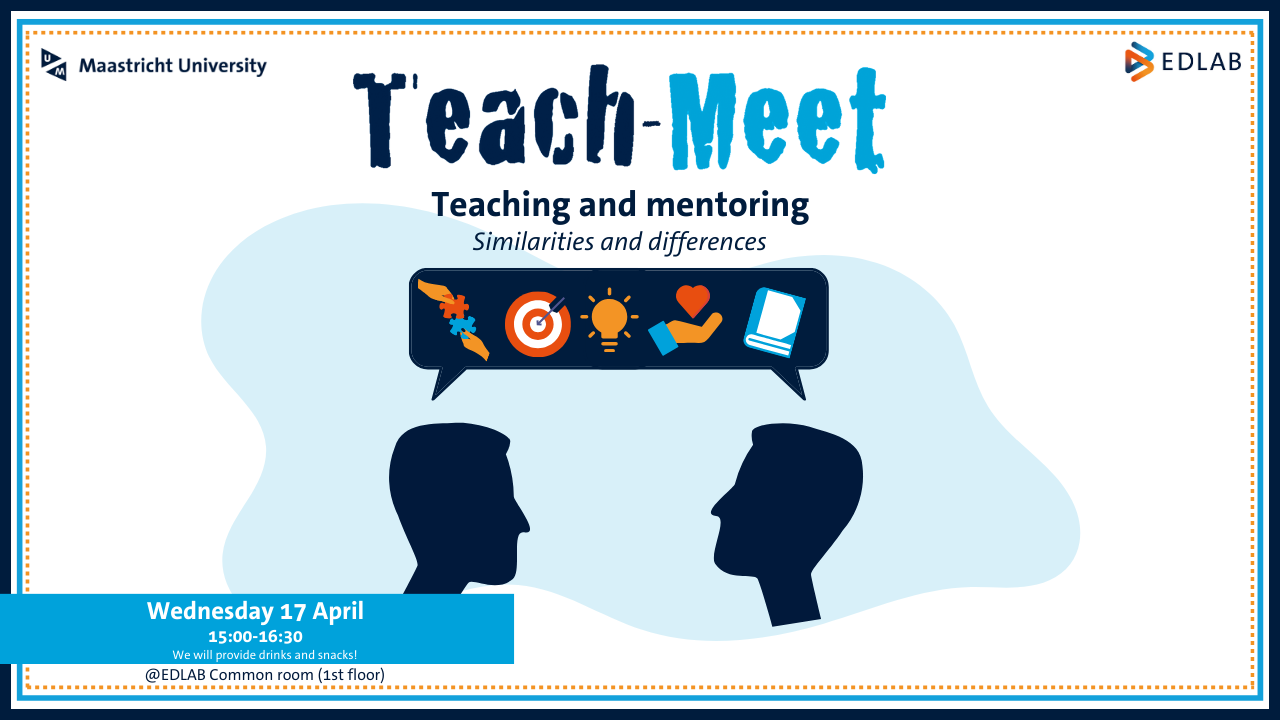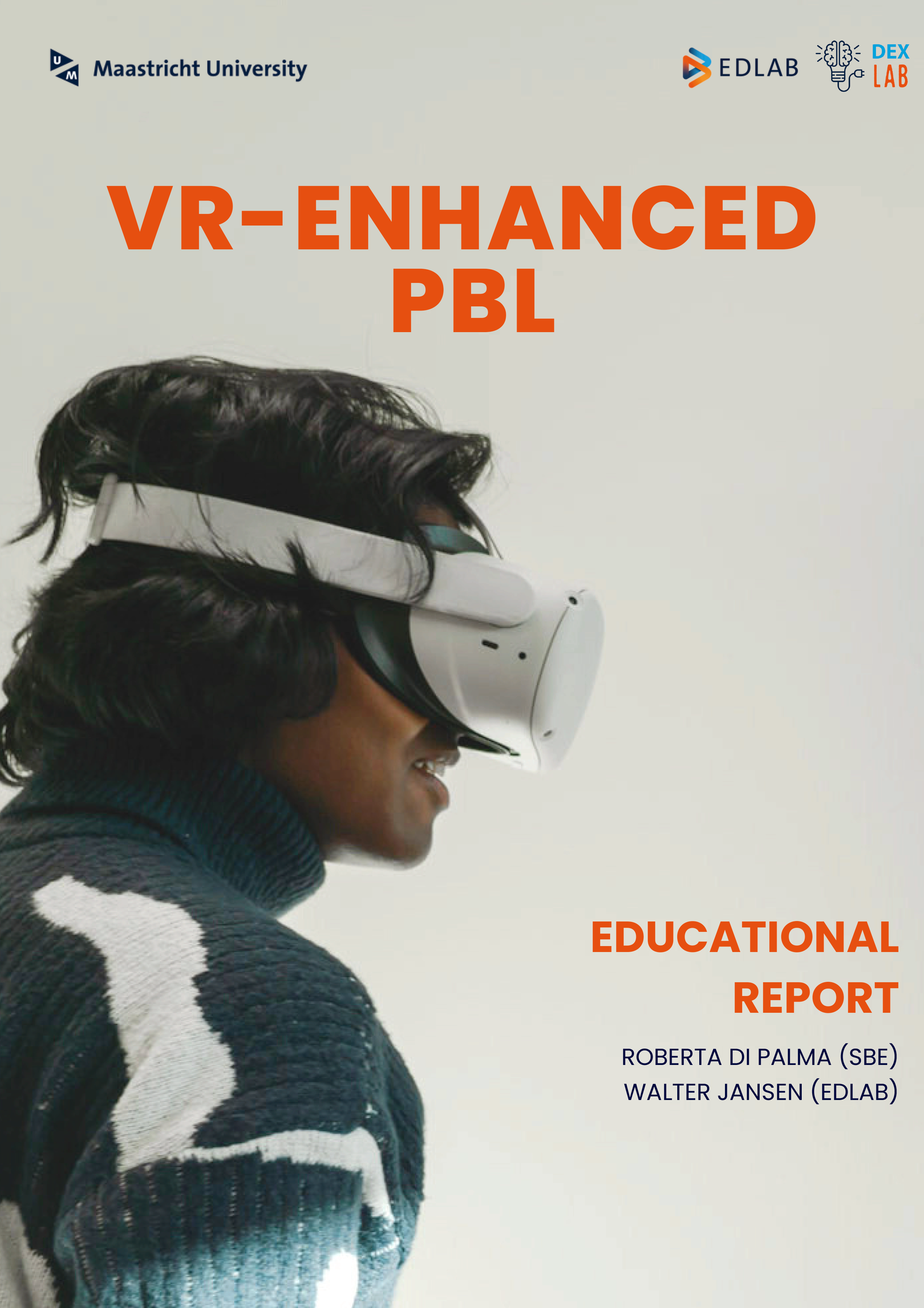The evaluation of education is a collaborative process
EDLAB's latest Teach-Meet session focused on Maastricht University's culture of evaluation. Staff members and students shared views and experiences in evaluation practices in various contexts of learning at Maastricht University.
The key takeaway? To be effective, evaluation needs to be inclusive and collaborative.

Evaluations have the potential to drive transformative change in education
“Why evaluate our education?” asked Matthijs Krooi, researcher and policy advisor at Academic Affairs. His presentation focused on the two main benefits of evaluation from the institutional perspective — accountability and improvement. “Evaluations serve as a tool for educational institutions to achieve ongoing improvement via the PDCA (Plan-Do-Check-Act) cycle."
Matthijs further highlighted the power of evaluations to drive transformative change in educational settings. “Evaluations connect individuals and organisational units through dialogue and empower stakeholders to make data-driven decisions."

Involve different stakeholders in your evaluations
“It is hard to find the balance between accountability on the one hand and improvement on the other, and that is why evaluation is a thorough and well-defined process at FHML,” said Carolin Sehlbach, Assistant Professor at the Department of Educational Development and Research O&O at FHML.
Caroline explained that FHML uses the theory-informed approach to evaluate courses and takes workplace learning into account. This approach includes implementing standard questionnaires at the end of each course, as well as additional questionnaires depending on what needs to be evaluated.
She stressed the importance of clearly defining the evaluation process, with a focus on engaging participants in reflection and dialogue to shape continuing professional development. She also said that the faculty offers training courses and runs a community of practice for tutors and coordinators to help them learn from their experiences and improve the quality of education for students.

Strive for progress, not perfection
Dominik Mahr, Head of the Department of Marketing & Supply Chain Management at SBE, listed six best practices to follow in collegial evaluation. He emphasised the importance of receiving and giving feedback as a means of improving educational practice: "Evaluation is feedback'’.
Dominik highlighted the human element of education: "Teaching is caring. It is important to listen to feedback from all angles and support one another. But we also need to protect ourselves from unjustified or harsh feedback." Finally, he recommended the use of awards to celebrate the successful implementation of evaluation practices.

Engage in feedback dialogues with students
Regine op den Camp, Policy officer for education at the Law Faculty, presented an innovative evaluation method used in the bachelor’s programme Rechtsgellerdheid. This programme introduced the method of dialogue feedback to first-year students.
The process is simple, and the first results have been positive. The dialogue feedback method consists in conducting semi-structured interviews twice a semester. She highlighted the importance of using IWIO (Interfacultair Web-based Informatiesysteem Onderwijkwaliteit) to support the evaluation process.
Regine presented the pros and cons of this evaluation technique, explaining that while it may be time-intensive and student-dependent, it provides a feeling of joint responsibility, quick action, and the possibility to adapt to the cohort.

An evaluation is better than no evaluation
Eveline Persoon, Education Development Officer at EDLAB and tutor, shared her personal best practices with evaluation and offered tips that have helped her make it effective. "It’s crucial to break open the conversation, ask open-ended questions, and show interest in the feedback given. I noticed that taking notes during the feedback round sends out a message to students that their voice is being heard.”
What else works for Eveline? “Scheduling an evaluation moment at the beginning of the tutorial meeting helps to set the tone. I use the conscious or unconscious evaluation method or the 1-minute evaluation. Allowing for anonymous or spontaneous feedback also helps.”
Finally, she pointed out that tutorial evaluation needs to be placed in the bigger picture of evaluation: “It is just one aspect of the evaluation process.”

Include the student voice in the evaluation process
Iveta Dzivite, a medical student at FHML, recommended including the student voice in the evaluation process. Her insights underscored once again the importance of continued collaboration and feedback in the evaluation of education.
Drawing from her previous work experience at ENQA (European Association for Quality Assurance in Higher Education) in Latvia, Iveta highlighted the differences that can arise in evaluation practices within the same organisation. “Course evaluations can vary between faculties and are often dependent on the course coordinators and tutors.”
Despite attempts to create more cohesive evaluations, students’ responses are often inconsistent due to a lack of motivation. Iveta advised tutors and course coordinators to ask for feedback throughout the course progression and tutorials to enable a collaborative process with all parties involved. "By being receptive to feedback and actively seeking it, the evaluation process can become more inclusive and effective, ultimately leading to an improved educational experience."
By Andrei Burlacu, student assistant at EDLAB

Evaluation of education is an essential component of the educational cycle. It can take place in formal, and informal settings, measure course, programme or institutional quality and serve (intermediate) learning processes such as group dynamics.
Also read
-
In this article, Emilie Sitzia, a Comenius Leadership Fellow at the Faculty of Arts and Social Sciences of Maastricht University, explores how to think and do PBL otherwise, that is, how to (re)integrate our eight senses into Problem-Based Learning.1
-
Teaching and mentoring roles often intersect, creating opportunities for academic development and personal interactions between students and tutors.
-
The VR-enhanced PBL project report produced by EDLAB and DEXLab explores the benefits of integrating VR technology into PBL classrooms.


